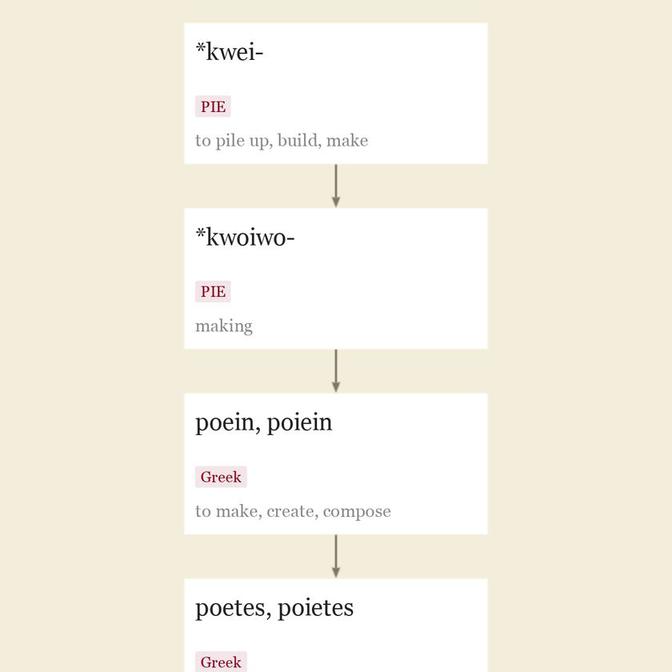poetry n.
late 14c., poetrie, "
Figurative use is from 1660s. Old English had metergeweorc "
It is only by a miracle that poetry is written at all. It is not recoverable thought, but a hue caught from a vaster receding thought. A poem is one undivided unimpeded expression fallen ripe into literature, and it is undividedly and unimpededly received by those for whom it was matured. [Thoreau, "A Week on the Concord and Merrimack Rivers"]
Poetry — meaning the aggregate of instances from which the idea of poetry is deduced by every new poet — has been increasingly enlarged for many centuries. The instances are numerous, varied and contradictory as instances of love; but just as 'love' is a word of powerful enough magic to make the true lover forget all its baser and falser, usages, so is 'poetry' for the true poet. [Robert Graves, "The White Goddess"]
And the relation of the forms of poetry to the requirements of actual song is so fixed, that the laws of the four great groups of metre which we now successively to examine—the trimetre, tetrametre, pentametre, and hexametre—all depend upon the physical power of utterance in the breath. [Ruskin, "Elements of English Prosody, for use in St. George's Schools," 1880]
updated on July 10, 2022
